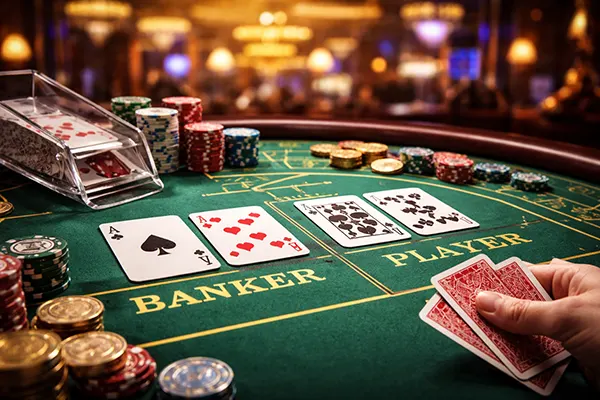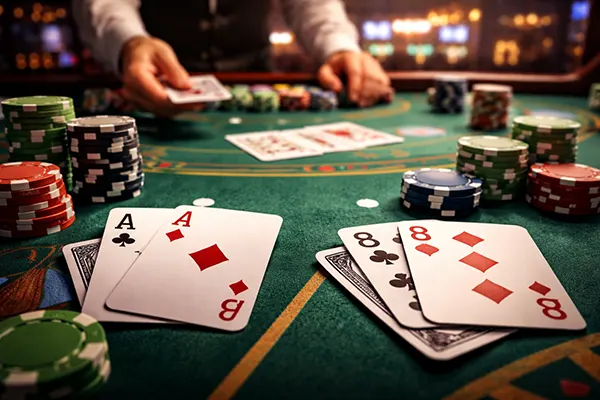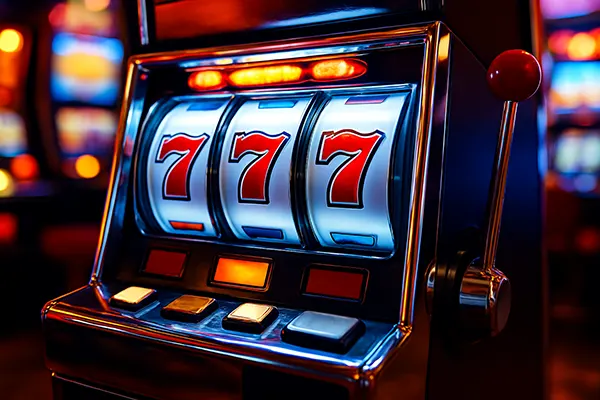How much technology has affected the gambling business
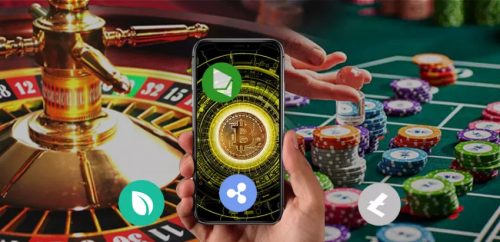
We all know that playing for fun is exciting and has been around since the dawn of time – a fact confirmed by historical writings. Since the development of civilization, entertainment has changed, all the new reflected in the games.
Let us define what the word “gambling” means. In general, the term can be interpreted as action based on risk to significantly increase the amount of money that depends not only on knowledge or mathematical calculations, and on luck.
The Persians were big fans of gambling; it is mentioned in Avicenna’s teachings. The Muslims were also not averse to amusement in this way. A trace in history regarding gambling dates back to 1700-1100 B.C. Back in those distant times, people were gambling for fun; there is even a poem called “The Gambler’s Lament” about it. It tells of a gamer’s plea to a higher power to win at dice. Dice used to be made out of walnut and had four sides. In order to win it was necessary to get the result of the number dividing by 4 without a remainder.
Nowadays, North American Indians create legal gambling areas and enjoy the rights to this kind of entertainment. These games have a sacred meaning, and not just satisfying the need for excitement, but also predict the future and connect with higher forces.
Ancient Egyptians 5,500 years ago could make predictions about cataclysms and possible objections of the world with the help of gambling. All the above said just shows that there was an analogue of gambling in the past.
The list of games in gambling establishments was not formed immediately, and became uniform for all casinos
The term casino used to be translated from Italian as “lodge”. The first gambling house was organised in Venice back in the 1st half of the 17th century. It was housed in the church of St. Moses. The Italian government decided to channel the excitement of the townsfolk during carnivals. Some of the games are still around today, only the genre, the specifics and the gameplay itself have changed slightly.
The lottery tops the list. Strange as it may seem, but a lottery ticket is widely regarded as a kind of security. There is a controversial opinion concerning the place where the lottery originated: ancient Rome or ancient China. Some claim that the Great Wall of China was built with funds raised from the lottery, which is similar to the keno lottery, around 100 BC.
As early as the second decade of the 17th century, the first lottery in America was held in the Netherlands in 1726. The first lotteries in Russia are mentioned from the late 17th and early 18th centuries. In 1782 they were given state status and were held until the early 20th century, usually to help those affected by crop failures in warfare. To take part in such an entertainment, you had to buy a ticket and expect to win. The sports lottery, on the other hand, required players to be active. Players had to make a choice of number combinations based on their own preferences, and in early 1974 it was possible to see the gameplay and follow the spinning reel on TV. There was a sense that something depended on the gamer. In the 80s, this entertainment was conducted on 2 lotto machines.
With the development of electronic technology as early as the 90s, lottery organisers began to transmit data directly to the point of collection from kiosks.
Nowadays, lottery tickets can be purchased in lottery terminals and vending machines combined with payment machines almost all over the world.
The second, rightfully so, goes to slot machines. Their basic principle remains the same: you need to collect from random numbers, symbols or characters right combination.But options for such a game has undergone significant changes.
In 1891, a 5-reel slot machine from Sittmani Pitt was introduced in New York. Most likely, it was with the light hand of the first gamers that the name of this type appeared. Slot translates to slot: you put a coin in a slot and actuate the reels with a lever.
Four years later, Liberty Bell in the U.S. presented a slot with 3 reels, which automatically gave out winnings. It began to be called the ‘one-armed bandit’.
At the beginning of the 20th century, slots began to be modernised and were replaced by ‘fruit’ slot machines. The prizes were sweets, chewing gum, drinks.
Until 1976, nothing changed, only the government tried its best to influence the development of gambling. The first slot with a logic board for a gambling house appeared in the late 70’s and was installed in Las Vegas.
Video slots appeared in Australia at the same time. Somewhat later, the first virtual casinos appeared, along with the first slot machine operating in online mode. This was followed by mobile machines and in 2010 by 3D slots.
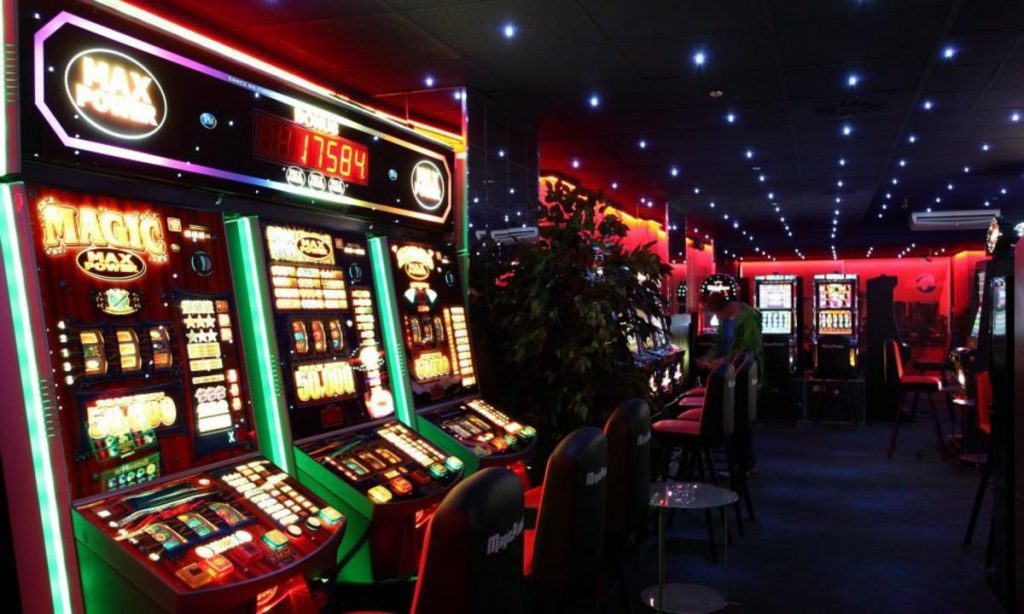
Place 3: Blackjack
The name Blackjack can be translated as ‘Black Jack’ and refers to a game of cards. The history of such entertainment dates back over 1,000 years. French gamblers began playing blackjack 300 years ago, but the game had a different name, 21. It then migrated across the ocean and the rules changed slightly and became attractive to many.
4th place: Poker
Europe is the home of poker, but unfortunately no one country can claim the top spot. History tells us that the game became popular as early as the 16th century in three countries: Germany, England and France. In 1968 the first poker competition was held in the USA, with the World Championship taking place two years later.
Seat No. 5: Roulette
There are plenty of variations on the origins of this pastime. The name itself translates from the French “wheel”. There were analogies in many countries, and at the end of 19th century roulette became known in the USA. Time passed – the rules were changing, and there were 3 types: American, European and French. In the Russian Federation, the European type is popular.
6 – Baccarat
A pastime with a very mystical and ritualistic origins. With many card games, the ancestor of baccarat was dice. This type of card game takes us back to its Italian roots. There is a belief that the game has some spy-like connotations and romance to it, as it is played so professionally by Agent 007.
7 – Craps
A rather simple game, it appeared on the World Wide Web along with other forms of entertainment at a time when the first online casinos were launched in the 90s of the 20th century.
8-Wheel of Fortune
There are several versions of how this game came to be. Technology has helped Wheel of Fortune get closer to the people. In the Russian Federation, “Field of Miracles” appears, and in online casinos this game is regarded as a type of roulette.
Betting is betting on the outcome or development of a situation. In the process, a bet is made between the bank and the bettor.
Sports and betting emerged at almost the same time – in 776 BC.
Internet betting has become a new type of betting.
Let’s summarise the individual games have evolved from ancient times to the present day in the same way as the gambling industry has. But no one can say what will give the gambling business a boost.

